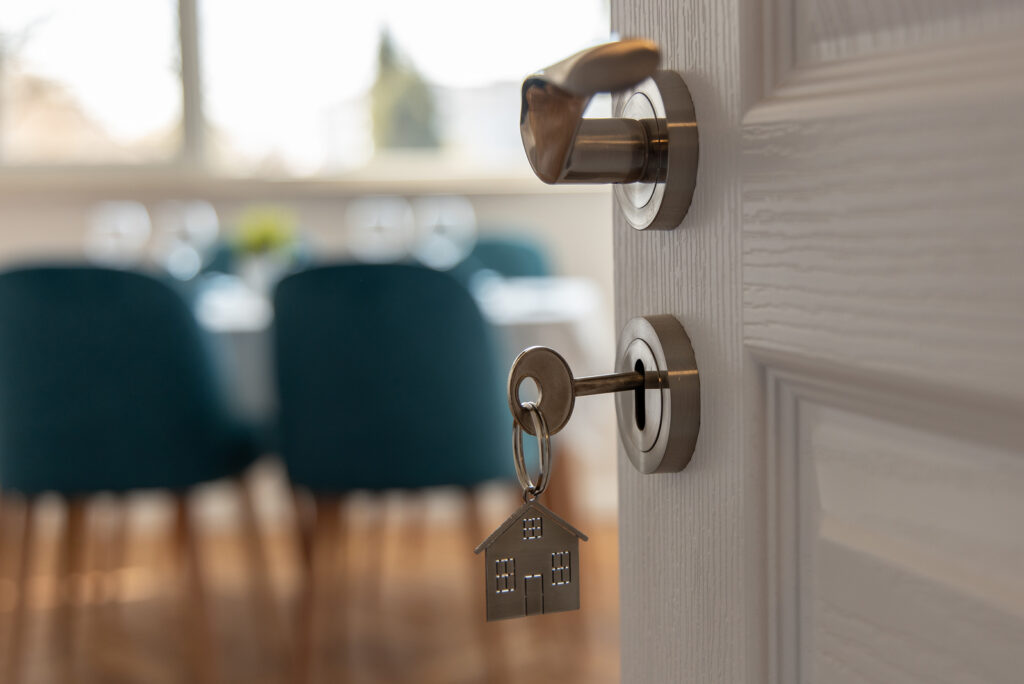 As a child, I thought that living alone meant doing whatever you wanted. While I occasionally live out this childhood belief (usually by eating unlimited cake for dinner), I’ve come to the conclusion that much of adulthood is spent searching for answers to questions I never knew to ask in the first place. And figuring out how to manage living solo is no exception.
As a child, I thought that living alone meant doing whatever you wanted. While I occasionally live out this childhood belief (usually by eating unlimited cake for dinner), I’ve come to the conclusion that much of adulthood is spent searching for answers to questions I never knew to ask in the first place. And figuring out how to manage living solo is no exception.
Here’s what I wish I knew:
It’s OK to call your landlords
Until I was 22, I’d only ever experienced dorm rooms, seasonal employment housing, and a couple of short-term handshake lease agreements. I didn’t ask a lot of questions when I chose my first official rental. The home had purple walls and its toilet worked, which felt like all the criteria I needed.
As it turned out, the windows didn’t lock. Once, a light switch actually electrocuted me. Another time, the mainline backed up what I can only hope was just greywater all over my bedroom floor. Unsurprisingly, rent was dirt cheap.
RELATED: 5 Things I Learned While Living Alone
Every time something went wrong, I always hesitated to call the landlords. When I did timidly call about big things (see: said electrocution), I felt like a burden with my requests. Rent was affordable, so I felt like I didn’t have a right to ask for much.
Eventually, I discovered mold growing behind wall panels in the bathroom. I requested a permanent solution to deal with the mold, and my landlords quickly cleaned the area, installed a ceiling fan, and purchased a small dehumidifier that prevented mold from returning.
As a tenant, I’m expected to take good care of the home I rent. I’m also paying for a safe place to live. During my first year living alone, I learned that it was OK to ask for reasonable home improvements, especially safety-related ones.
Feel comfortable with your healthcare providers
My mom scheduled all of my doctor’s appointments during my childhood. When I officially moved out of my family’s house, I realized I needed to find my own providers whom I trusted.
Growing up, I naively assumed that all medical providers offered great care. Shortly after moving to Kansas, I saw a physician who joked about a health concern I had. I left his office frustrated and uncomfortable. After that visit, I made a pact with myself to only see providers I felt comfortable around. More than once, I’ve stopped seeing a provider after receiving subpar care. While it’s awkward at times, I ultimately value my health more than a provider’s feelings.
When I do find providers I like, though, I make sure to schedule regular appointments. I’ve learned it’s best to immediately schedule my next appointment as I leave from my current one. I pop it on my calendar — even if it’s 12 months out — and ask the appointment desk for reminder texts.
Close the loop
When I graduated from college, I swore I’d say goodbye to unbalanced meals, wrinkled clothes, and tardy arrivals. Unsurprisingly, these changes did not happen overnight. Lunch still consisted of spoonfuls of peanut butter. I continued to cleverly fold myself around mountains of laundry that took up most of my bed. I often looked at easy tasks and thought, “I’ll deal with that tomorrow.”
RELATED: How to Feel Less Lonely When You’re Alone
Bills are what finally lit a fire underneath me. I’m not sure exact details, but the consequences of missing a bill payment don’t sound good. Whenever I get a bill in the mail, I immediately deal with it. Closing this loop was simple enough, so I started applying this practice to other parts of my life. I created a list of recipes that could be made in bulk and then actually bought ingredients. Laundry came out of the dryer and went into drawers instead of onto my bed. I stuck a to-do list on my fridge and followed it. Instead of saying “I’ll do it tomorrow,” I just did the task that moment.
While I haven’t mastered the art of arriving on time, I’ve discovered that closing the loop on most tasks is pretty easy once I get over my own laziness and just do them.
Understand what you’re signing
Shortly after college, I accepted a higher deductible in an effort to lower my car insurance premium. Unfortunately I failed to ask how much it was actually saving me. It turns out I was only saving a few dollars a month — something I found out the hard way when I scratched a rental car. The repair bill equaled my deductible and I ended up having to cover the full amount by myself.
That incident inspired me to sit down with an agent and have them explain each line item before I agree to coverage. I also ask them to show me several options for comparison. If I’m to be honest, paperwork of all sorts still baffles me. However, I now make more of an active effort to better understand what I’m signing before signing it. I’ve turned a more careful eye on work-related paperwork like quotes, contracts, and invoices. It’s paid off, too. Not only do I better understand what I’m committing to, I’ve occasionally found errors (like incorrect charges on invoices) that need correcting.
I’ve discovered that living alone comes with a fair amount of guesswork. Perhaps one day I’ll have all the answers. In the meantime, you’ll find me over here advocating for public school curriculum to include classes on understanding insurance coverage.